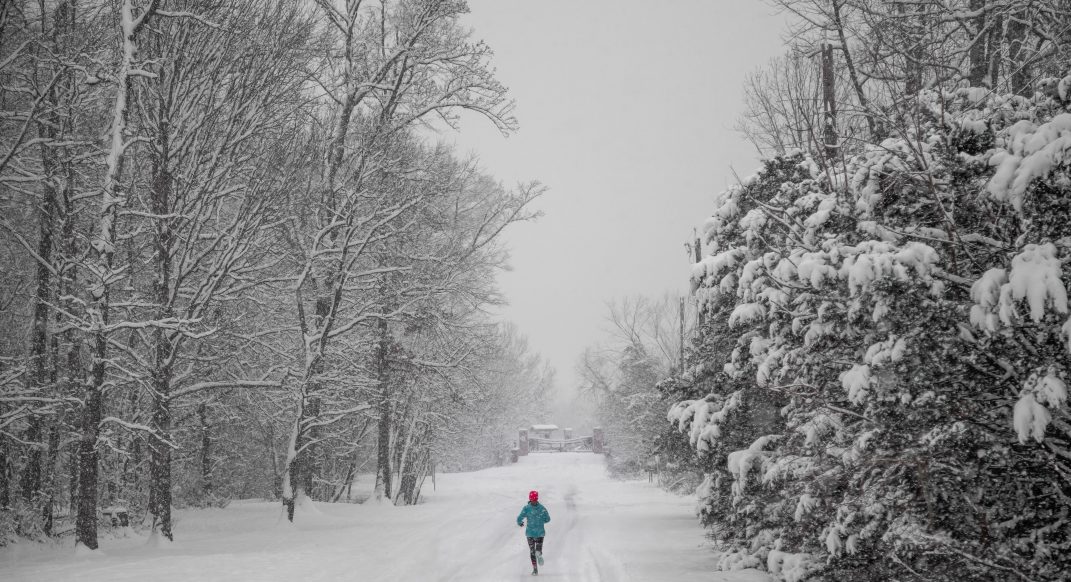Q: Do I still need to hydrate as much when it’s cold outside?
A: Staying hydrated all year round is key for our bodies to run smoothly, and even small amounts of dehydration (2% total body weight loss) can affect our running performance.
When it’s hot outside, we sweat more and feel thirstier. In the winter, cold weather makes blood vessels constrict, sending blood to our body’s core. This blunts our thirst response and tricks our body into thinking it is properly hydrated.
On top of this, cold air in the winter tends to be drier than the summer. When we breathe in cold air, our lungs warm the air, humidify it and exhale some moisture when we breathe out (that’s why we can see our breath in the winter).
Runners tend to layer up for chilly winter runs. Wearing heavier clothing when running outside keeps our core body temperature warmer, but also causes us to work harder and sweat more. Starting on the chilly side and shedding layers as you warm up can help regulate temperature and avoid overheating and excessive sweat.
What to do?
When it’s warmer, experts recommend trusting your thirst to avoid over-hydration. However, since the cold can interfere with those signals in winter, don’t wait until you’re parched to drink. When running for over hour in the winter, still aim for consuming 16 to 20 ounces of fluids per hour with some electrolytes mixed in.
Because water can freeze in your pack or water bottle on cold days, using an insulated bottle or bladder with a hot electrolyte drink mix can help. Other solutions are to create a front carrying pouch for your bottle or bladder to keep it close to your body, wrapping a bottle with insulating foam and placing your bottle into a wool sock.
On the daily, because it can be more difficult to remember to gauge thirst and hydration status in the winter, setting up a regular hydration schedule can help. Keep water bottles in places you frequent to remind yourself to drink, or you can track your fluid intake in an app. Hot beverages like herbal tea, cider or broth are tasty alternative to water. Everything—including eggnog—counts, though it might be less favorable for the waistline.

